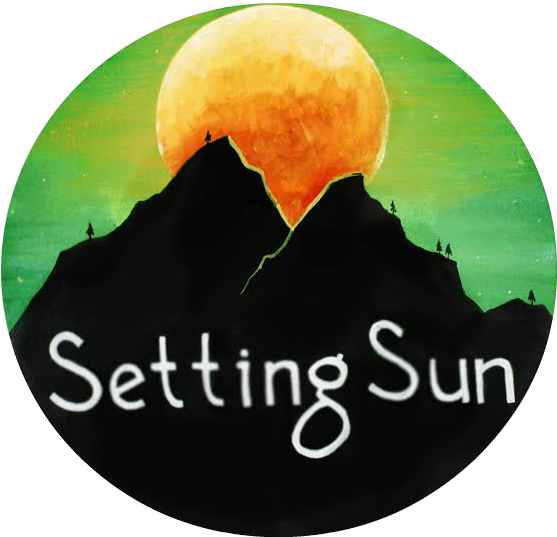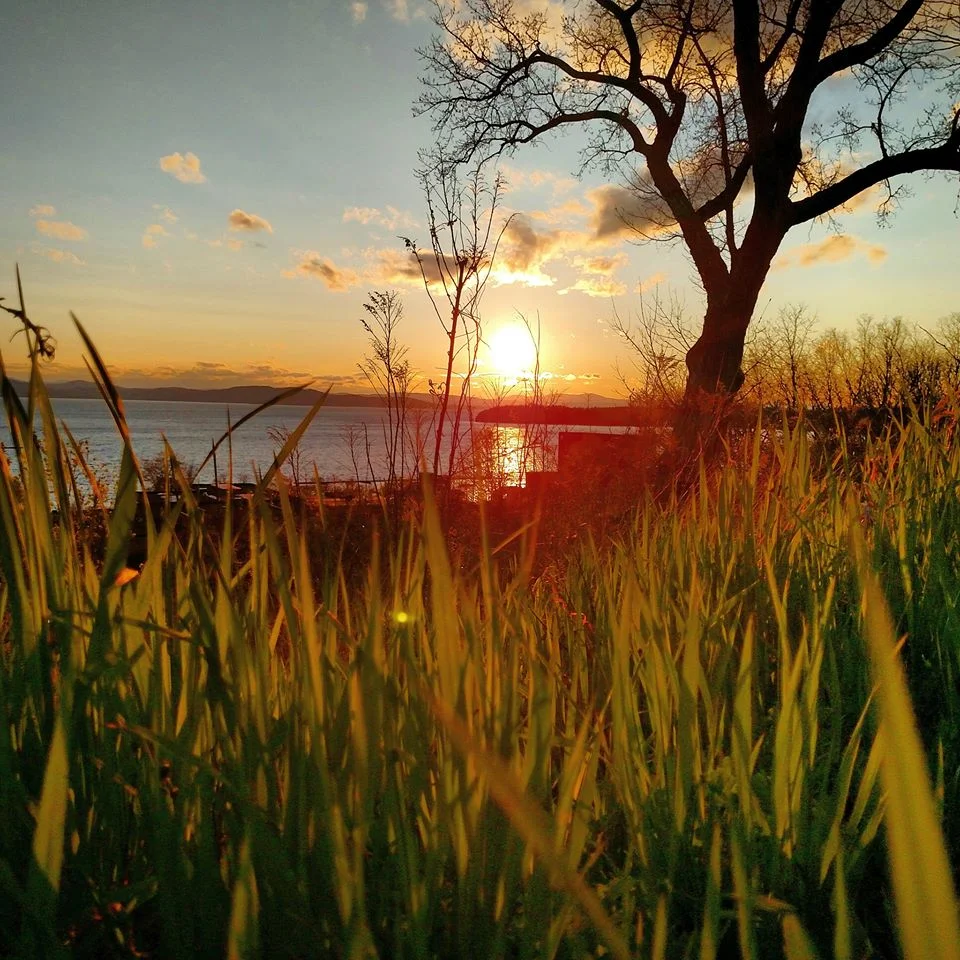The origins of the “SettingSun” stems from research regarding indigenous and shamanic cultures. In many of these cultures, health and wellness comes from balance in different domains -- the spiritual, mental, emotional, and physical domains. A useful tool that is helpful to understand how to create balance and wholeness in life is the Native American medicine wheel. The medicine wheel is broken up in four directions -- North, East, South, and West. Each direction represents different aspects of life. By standing in the center of the medicine wheel, one can begin to understand where there may be an imbalance.. It is important to always come back to the center. The SettingSun sits in the West in the medicine wheel, and we look towards this direction for guidance and healing.
The Gift of the West — The Gift of Vision: The capacity to see clearly with our inner eye what we could become, or what the people could become together, if we should undertake the necessary journey, is as essential to human development as rain and sunshine are essential to the growth of plants. This is because as human beings we develop and grow through our own decisions. We therefore must have some vision; some ideal or goal to look toward, or else we will have no way of knowing what we must do (Bopp, 1984, p. 61).
The sun sets in the West. The West symbolizes the places of dreams, visions, adulthood, deep introspection and reflection, and the ability to search deep within one’s self to heal. The West also symbolizes Death and our relationship with Death — which is important in regards to how we live our lives. This is often a relationship that is feared in Western culture, and is a relationship that needs to become stronger if the people of the Western world want to live healthier and happier lives. It is the stigmatization and fear of death that can hold cultures back, and sometimes creates physical sickness, mental illness, war, poverty, and much more. Death provides the vision for life. It is in Death’s grip that we can truly begin to see the worth and value of life, and the potential possibilities of life.
Lessons of the West:
- The importance of working with your dreams and visions.
- The importance of having the ability to turn inward to face the darkness and unknowns of self and life.
- The importance of prayer, meditation, rituals, and ceremony.
- The importance of developing a sense of spirituality in your life.
- The importance of being able to take time for inner work, deep introspection/reflection, and self-exploration.
The West and Hungry Ghosts:
In various indigenous and shamanic cultures, illness and disease is sometimes associated with spiritual forces. In this regard, the spiritual forces that can cause illness are sometimes called “Hungry Ghosts” or the ghosts of our forgotten ancestors. They are called hungry ghosts because they are the spirits that continue to feed off of the energy of the younger generations. When we forget what our ancestors have been through, and forget where we come from, we can not properly mourn the spirits that has crossed over. Stuck in a state of limbo, these spirits continue to be hungry and feed off the life energy of individuals, creating physical sickness, mental illness, addiction, depression, and etc. Mayan shaman, Martin Prechtel, explains in an interview that is published in The Sun Magazine, that the hungry ghosts of our ancestors chase us towards the setting sun of the West:
…The ghosts will actually chase you, and they always chase you toward the setting sun. That’s why all the great migrations of the past several thousand years have been to the west: because people are running away from the ghosts. The people stop and try to live in a new place for a while, but the ghosts always catch up with them and create enormous wars and pain and problems, which feed the hungry hordes of ghosts. Then the people continue on, always moving, never truly at home. Now we have an entire culture based on our fleeing or being devoured by ghosts (http://thesunmagazine.org/issues/304/saving_the_indigenous_soul).

